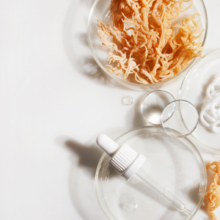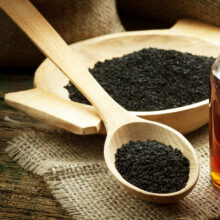Organic Farming 101 with Kim Wojtowicz, Farm Director at the Farm at Natirar
- Published: Monday, January 20th 2014
- in Nutrition
 Organic farming is defined by the Environmental Protection Agency as “food grown and processed using no synthetic fertilizers or pesticides.” Simple, right? Wrong. From crop rotation and composting to seasonal and sustainable – there’s a ton of work that goes into organic farming! We caught up with Kim Wojtowicz, Farm Director at the Farm at Natirar in Peapack & Gladstone, NJ – future home of the east coast Miraval opening in 2015 – to get some inside info on organic farming!
Organic farming is defined by the Environmental Protection Agency as “food grown and processed using no synthetic fertilizers or pesticides.” Simple, right? Wrong. From crop rotation and composting to seasonal and sustainable – there’s a ton of work that goes into organic farming! We caught up with Kim Wojtowicz, Farm Director at the Farm at Natirar in Peapack & Gladstone, NJ – future home of the east coast Miraval opening in 2015 – to get some inside info on organic farming!
What differentiates organic farming from other types?
“Growing organically means not using any synthetic fertilizer, pesticides, or herbicides but rather working within an ecosystem where the fertility of the soil is built up through practices like crop rotation, cover cropping, minimal tillage, and composting. When the soil is fertile the plants are strong and germinate, grow and flourish without the need for chemical amendments. Organic growing prevents water contamination, soil erosion, and most importantly allows the production of healthy food for human consumption. It is therefore the best choice we can make for our environment and our health.”
 What are some of the biggest difficulties you face with an organic farm? Any surprises?
What are some of the biggest difficulties you face with an organic farm? Any surprises?
“The use of synthetic pesticides and fertilizers in conventional farming allows for cheaper production of food but with many long-term tradeoffs. Organic farming requires constant vigilance. Crops must be constantly inspected because conventional methods of chemical controls are unavailable. Alternative methods of pest control like row covers and other physical barriers add to the cost of production. The labor hours also add to the cost, as weeds must be smothered or hand picked, not simply sprayed with a chemical to kill them. It is difficult, time consuming, physical work, but the long term benefits of healthy growing for healthy living motivates us.
What I am most surprised, and pleased, about organically gardening and farming is just how right it feels. In most simplistic terms, I take organic scraps from the kitchen at Ninety Acres, add it to the manure from my very happy free range, humanly treated animals, make compost which is then used as the fertilizer for my production of crops. These crops are then brought back into the kitchen and the entire process begins again. Additional scraps are consumed by our pigs, our sheep help mow our fields, and our chicken assist in pest control by pecking the bugs out as they and the rest of the animals continue to fertilize the fields. Without outside amendments, the process just works and enhances a sustainable growing environment.”
If someone wanted to get started in a small way at home – what are some tips you’d give them? Where’s the best place to start?
“To begin to farm organically, I always recommend starting small and in a controlled area like a raised bed. Raised beds can be made or purchased and come in many shapes and sizes; even small enough for decks. Raised Beds help control some of the uncertainties of organic farming. Organic soil mixes can be purchased and are balanced with nutrients needed for proper plant germination and growth. Other uncertainties like pests can also be controlled using fabric raised bed covers. This cloth allows the sun’s penetration but helps block out pests. Stronger barriers can also prevent small rodents and even deer when attached to the raised beds. Once hooked on organic growing, you can then venture into kitchen composting and small land production.”


